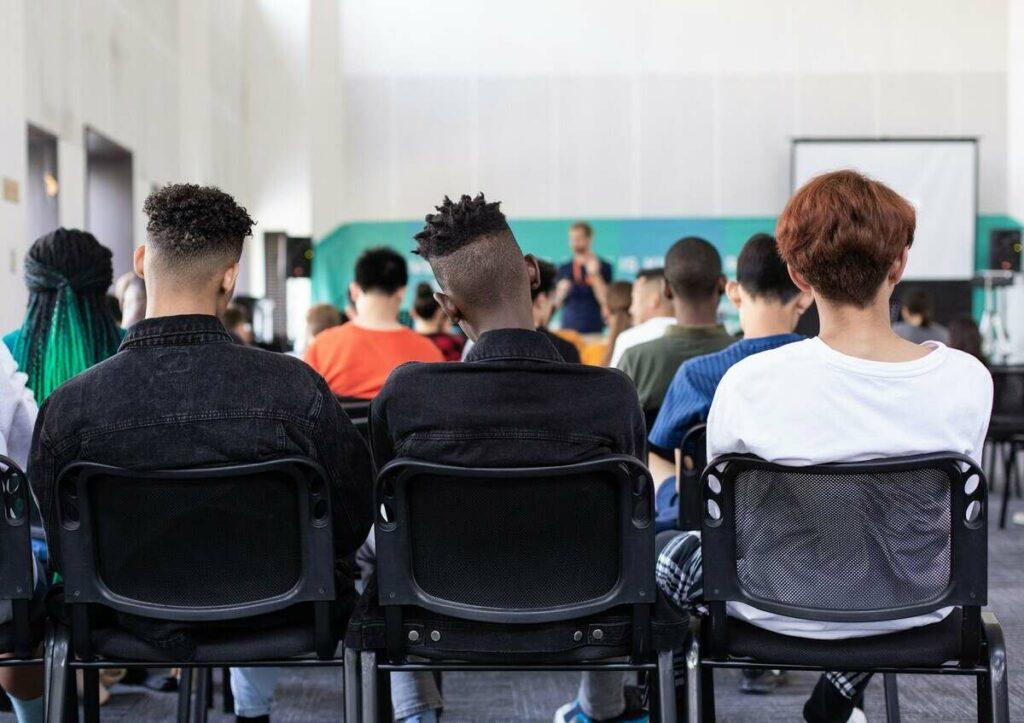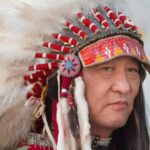As an experienced IB writer, I’ve always found the Theory of Knowledge to be one of the most fascinating components of the IB curriculum. It challenges students to reflect on the nature of knowledge and how we come to understand our world. Today, I’m excited to share insights on the five optional themes in TOK, a crucial part of the IB DP curriculum that offers diverse perspectives on knowledge.
What Are Optional Themes in TOK?
According to general IB criteria, these themes provide a structured way for students to consider how knowledge is constructed and understood in different contexts. From my experience, optional themes in TOK are gateways to understanding the diverse landscapes of human knowledge.
Each theme invites students to investigate specific Areas of Knowledge, allowing them to contextualize and critically examine how knowledge interacts with various aspects of the world. Here’s a quick overview of the five optional themes currently offered in TOK:
- Knowledge and Technology – Examines how technological advancements shape our understanding.
- Knowledge and Language – Looks at the role of language in constructing knowledge.
- Knowledge and Politics – Analyzes the influence of knowledge on political processes and vice versa.
- Knowledge and Religion – Investigate the interactions between religious beliefs and knowledge systems.
- Knowledge and Indigenous Societies – Considers the unique perspectives that indigenous knowledge systems contribute to global understanding.
In my opinion, these themes are essential because they prompt students to question the foundations of knowledge itself. For example, in Knowledge and Technology, students aren’t just learning about new tools but examining how these innovations can alter perceptions and create new forms of knowledge. Similarly, Knowledge and Religion prompt students to consider how deeply held beliefs can coexist with empirical understanding.
I have guided students through these themes, and I know that the discussions and insights they provoke are profoundly influential. They encourage deeper engagement with the material and challenge students to connect their academic studies to real-world situations. Engaging with these themes is crucial for any student who wants to develop a broad and critical approach to understanding knowledge.
1. Knowledge and Technology
In my opinion, the relationship between knowledge and technology is one of the most critical areas of study in today’s educational landscape. This topic focuses on how digital advances drastically change how we acquire and apply knowledge. It’s important to understand that technology is not just about the tools and gadgets we use daily; it’s fundamentally about how these innovations change how we understand and interact with our environment.
Considering the significant impact of technology, let’s reflect on some pertinent questions that this theme encourages students to tackle:
- How does technology impact privacy and security?
- What role does artificial intelligence play in our collective and individual understanding of the world?
- In what ways are technological advancements altering traditional educational environments?
These questions form a robust platform for critical analysis, allowing students to engage deeply with the material. From my experience, discussing these topics helps students grasp technology’s profound impact on our perception of truth and knowledge. It encourages them to critically evaluate the ethical implications of technological advancements and consider the broader consequences of our increasingly digital existence.
Indeed, writing a TOK essay for the IB curriculum is more than just brilliant wordplay. These assignments push students’ intellectual boundaries and experiment with various methodological approaches. Fortunately, students don’t have to face this difficult task alone. They can seek help and buy a TOK essay from our experienced IB writers.
2. Knowledge and Language
In my opinion, language is the foundation upon which societies build their knowledge. It does more than just convey information; it shapes our understanding and molds our reality. This theme investigates how language influences knowledge creation and how it is disseminated across different cultures and communities.
As I know from my teaching days, engaging with this theme offers students a fascinating lens through which to view the world. Language reflects our knowledge and influences it in substantial ways, making it a critical area of study in the IB TOK course. From my experience, here are some knowledge questions that students are encouraged to consider within this theme:
- How does language shape our classification and understanding of complex ideas?
- In what ways does language act as a barrier to or facilitator of communication across cultural divides?
- How do linguistic differences impact the perception and dissemination of knowledge in different communities?
These questions encourage students to critically analyze the role of language in knowledge processes, fostering a deeper appreciation of its power and limitations.

Classroom discussions can take a practical approach to investigating how language enables and limits our understanding. For example, consider the role of metaphors in shaping our perceptions of complex scientific concepts or social issues. Metaphors can simplify complex ideas, making them more accessible, but they can also limit our understanding by placing information in specific contexts.
Curious about how the EE and TOK matrix work? This guide breaks down the connection between EE and TOK and how they affect your IB results.
3. Knowledge and Politics
From my experience, the interplay between knowledge and politics is dynamic and often contentious. Knowledge can be used to both uphold and challenge power structures. Political decisions are frequently based on the manipulation or strategic dissemination of information. This utilization of knowledge can significantly impact democratic societies, where informed public discourse is essential for the health of the political system. As I know from observing global trends, how information is handled within a political context can significantly influence public opinion and policy outcomes.
Reflecting on the critical role of knowledge in politics, here are several key questions that this theme encourages students to consider:
- How do governments use the information to justify or promote policy decisions?
- What role does misinformation play in influencing public opinion?
- How can citizens discern and challenge the integrity of information presented to them?
These questions stimulate critical thinking and invite students to analyze current events and historical examples of how knowledge played a crucial role in political processes.
One effective way to bring this theme to life is by discussing real-world case studies where specific knowledge claims influenced government policies. Such examples vividly illustrate the potent mix of knowledge and politics. For instance, consider how environmental data shapes policy responses to climate change or how economic statistics guide fiscal policies.
4. Knowledge and Religion
According to the general IB criteria, studying the relationship between knowledge and religion requires examining how religious beliefs and doctrines influence community perceptions of truth and morality. This inquiry isn’t just about understanding different belief systems; it’s about investigating how these beliefs frame our understanding of the world.
As I know from facilitating student inquiry, this topic prompts students to consider the coexistence of scientific and religious knowledge. It challenges them to think critically about how different forms of knowledge interact. From my experience, here are some critical questions that guide the research on this theme:
- How do religious doctrines shape the laws and ethical norms of a society?
- In what ways can religious knowledge complement or conflict with scientific knowledge?
- How do societies reconcile scientific advancements with religious beliefs?
These questions encourage students to assess the interaction between knowledge types critically, fostering a deeper understanding of how religious and scientific knowledge coexist or contend within various societal frameworks.
Debates on evolution versus creationism are perfect case studies illustrating the dynamic relationship between knowledge and religion. These debates highlight the personal and societal impact of religious beliefs and underscore the challenges of integrating scientific knowledge within religious contexts.
Consider, for example, medical ethics and religion. How do religious beliefs influence decisions about medical practices such as genetic engineering or euthanasia? Or think about environmentalism. What role do religious doctrines play in shaping attitudes concerning environmental protection? These discussions are vibrant and important for students to engage in. They provide real-world examples of how religious and scientific knowledge interact.
5. Knowledge and Indigenous Societies
In my opinion, indigenous knowledge systems are not merely alternative ways of understanding the world; they are crucial narratives that challenge and broaden our global perspective. This theme emphasizes recognizing and valuing these diverse knowledge systems as integral to our collective understanding of the world. As I know from teaching TOK, investigating these systems helps students appreciate the depth and richness of knowledge beyond the conventional academic disciplines taught in most schools.

Need help with your IB TOK essay?
From research and analysis to structuring and editing, our skilled mentors will be by your side, helping you write an exceptional TOK essay that meets the word count and stringent IB criteria.
Reflecting on what I’ve learned through years of curriculum development and student interactions, here are some questions that this theme encourages students to research:
- What constitutes indigenous knowledge, and how is it transmitted across generations?
- How do indigenous knowledge systems contribute to sustainable practices and environmental stewardship?
- How can modern societies learn from and integrate indigenous approaches to knowledge and living?
These questions foster a deep, critical examination of how knowledge is formed and valued and promote a more inclusive understanding of intelligence and wisdom across cultures.
Discussing how indigenous knowledge has integrated with or conflicted with modern scientific methods provides a rich, enlightening experience. These discussions broaden students’ perspectives and cultivate a deep respect for the complex layers of knowledge that indigenous cultures maintain.
Conclusion
In conclusion, the optional themes in TOK enrich your understanding of how knowledge is constructed and valued in different fields. I encourage all TOK students to be curious and open-minded about these themes. I also invite you to share which theme fascinates you the most and why.
By the way, in addition to our expert EE writers, our company also provides services for TOK essay writing, all of which are worth considering.
Luke MacQuoid
Luke MacQuoid has extensive experience teaching English as a foreign language in Japan, having worked with students of all ages for over 12 years. Currently, he is teaching at the tertiary level. Luke holds a BA from the University of Sussex and an MA in TESOL from Lancaster University, both located in England. As well to his work as an IB Examiner and Master Tutor, Luke also enjoys sharing his experiences and insights with others through writing articles for various websites, including extendedessaywriters.com blog
- Transition Words For An Argumentative Essayby Narmeen
- Figurative Language Examples in Literature – IB English Extended Essayby Narmeen
- Math Extended Essay Topicsby Luke MacQuoid
- 100+ Famous Quotes on Languageby Luke MacQuoid
- 100+ Famous Quotes on Indigenous Societiesby Luke MacQuoid
- 100+ Famous Quotes on Religionby Luke MacQuoid



